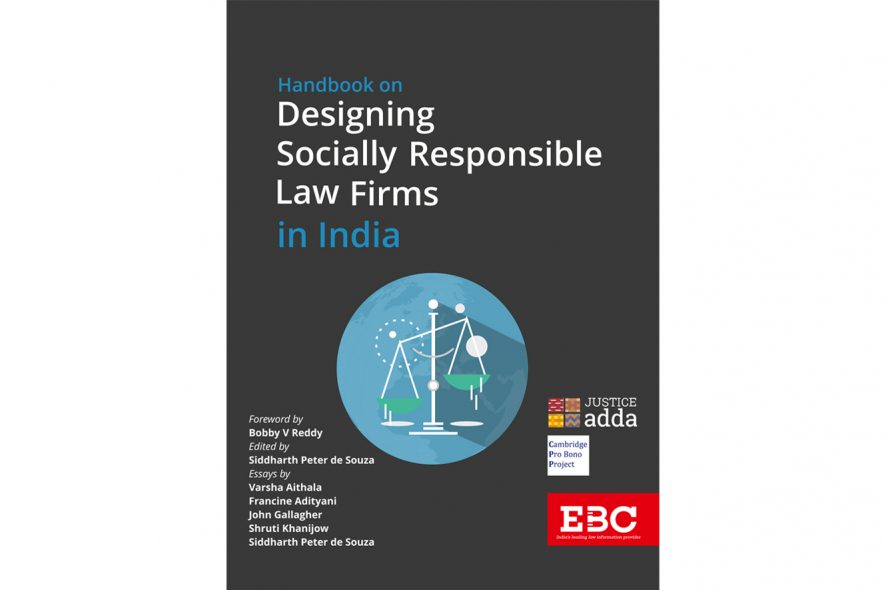Designing Socially Responsible Law Firms in India
The legal profession in India has witnessed a disruptive year, with the biggest law firm1 splitting up into two equally strong firms and a number of high profile moves across the industry by senior partners and teams.2 Despite the volatility in the industry, in 2016, Indian firms completed Mergers and Acquisition deals worth $64.5 billion as compared to $33.9 billion in the previous year3 and also continued to aggressively hire new graduates from the leading law schools.4
With global aspirations and liberalization of markets, these firms operate in a constantly developing reality where the nature of the work changes from providing client centered legal services to strategic consulting, and also policy advice for governments. As organizations they are required to adapt to new entrants and diversified competition, government regulation with its political and economic implications, market preferences as well as obligations as agents that contribute to the development of law and social change.
The role of the law firm in India is maturing into a multi-faceted organization with roles as diverse as being a critical economic agent, an important employer and an actor that shapes and promotes policy. As these firms become increasingly institutionalized and embedded in the legal landscape of the country it is vital to also recognize the role of the firm to the community at large. The Society for Indian Law firms, a collective of India’s top corporate law firms reflect this sentiment in their mission where, among other things, they call for providing legal aid and assistance to persons in need, protecting human rights, and promoting reforms in law that support the social and economic needs of people.5
However, building a socially responsible practice is a conversation that is still at its very nascent stages in India. In a recent profile by the 2016 Trust Law Index,6 data from only four Indian firms was made available, which indicated a lack of an entrenched culture of pro bono work among firms both in terms of systematizing it in the practice but also in terms of communicating progress to a wider public. As a result, there is a pressing need to evolve a more holistic solution. This can only be achieved through closer engagement between the suppliers and demanders of legal services, and a review of the particular challenges before each constituency.
Through this handbook, Justice Adda and the Cambridge Pro Bono Project explore the role of law firms in India in the wake of the globalization of competition, market consolidation of law firms, and the technological impact on legal practice. Through these lenses, an attempt is made to situate its growth as a pivotal institution in the delivery of legal services and for the realization of access to justice. In this regard, it is crucial to understand the approach of firms through their immediate spheres of influence. This will help ascertain the opportunities for them to contribute to meeting barriers to justice. A key consideration at the outset would be to explore how to dissect the social responsibility of a law firm. Is social responsibility a symbolic enterprise? Is it a value that is inherent or a normative concept that should be aspired towards? Should firms build operations in order to have strong social impact? Should they institutionalize a culture of social responsibility or is it a more informal constituent of the firm’s ethos? Who are firms socially responsible to? Does the legal profession as a whole provide a space for firms to engage in more social projects? Does the regulatory authority mandate a culture of social responsibility? Does social responsibility make economic sense in a competitive market? How do firms balance economic efficiencies and the common good and ethical conflicts arising in cases?
These are questions that have formed the basis for the formulation of this handbook. They have been critical in visualizing how to understand the decision-making processes of firms, the challenges of their context and the perspectives of different actors that have to be considered to provide a concrete framework and assessment of a way forward.
The complete report is indexed on SCC Online® here:






